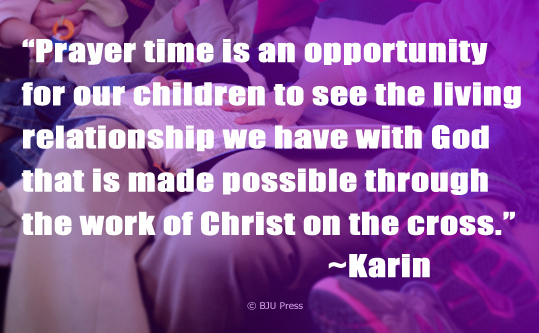Mention “community service,” and some of us get weak in the knees. Suddenly all our other commitments begin to protest inside our heads, and we find ourselves thinking—if not saying—“I simply don’t have the time or the energy.” We feel guilty because we know teaching our children to give back is important, but our feelings of intimidation cause us to opt out of opportunity.
The problem could be that we just aren’t aware of the breadth of the community service umbrella. We may be thinking evening-news-making, grand-scale projects such as feeding a hundred homeless people every night of the year—an admirable accomplishment, don’t get me wrong. But there are myriads of projects in the category of “back up” or “support” that would qualify as community service. When we place the emphasis on thoughtfulness rather than on mobilizing a large group of people or racking up hours, sharing becomes not only feasible but a valuable exercise in creative ministering.
 Ideas of how to be a support and encouragement to volunteers already in the trenches are limited only by our imaginations. Do you know someone who delivers food for the Meals on Wheels Association of America™? Could they use a meal now and then after a busy day of serving others? Would your local fire station welcome a few gallons of homemade lemonade on a hot summer day? Do you have a regular magazine subscription causing clutter around the house that a literacy volunteer could use in an adult reading class? Are diapers on sale at a store in your community that volunteers at your local pregnancy crisis center would gladly receive?
Ideas of how to be a support and encouragement to volunteers already in the trenches are limited only by our imaginations. Do you know someone who delivers food for the Meals on Wheels Association of America™? Could they use a meal now and then after a busy day of serving others? Would your local fire station welcome a few gallons of homemade lemonade on a hot summer day? Do you have a regular magazine subscription causing clutter around the house that a literacy volunteer could use in an adult reading class? Are diapers on sale at a store in your community that volunteers at your local pregnancy crisis center would gladly receive?
It goes without saying that community service affords us the opportunity to let our light shine. Even if we have only a small portion of time and energy to invest, simple acts of kindness will serve to heighten our children’s awareness of the needs around them and the rewards of being an encouragement. If the perceived level of involvement is what is scaring you away, take heart: Creativity and thoughtfulness are the real keys to making a difference.
Have you found ways to help out in your community? How have you been able to involve your children?



